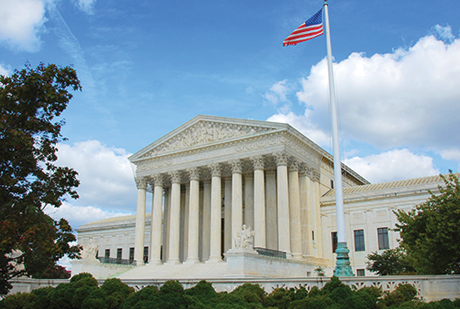By Paul Messina | Cotney Construction Law
On June 18, the long-awaited decision regarding the Deferred Action for Childhood Arrivals program from the Supreme Court was issued. In its 5-4 ruling, the Supreme Court struck down the Trump administration’s bid to rescind DACA, ending the saga that began in 2017. DACA is a program that began under the Obama administration that allowed certain undocumented children who came to the U.S. as children to apply for a two-year forbearance from removal proceedings. With the DACA designation, these children could attend school and legally work in the U.S. without the fear of being deported.
The main challenges brought by the plaintiffs suing against the rescinding of DACA was it violated the Administrative Procedures Act as an arbitrary and capricious action and violated the Fifth Amendment Equal Protection Clause. The Department of Homeland Security argued it was not a violation of the APA because it was an action not subject to judicial review because the action was related to a non-enforcement policy. The court found the DHS action was subject to judicial review because the protection, under the case law, only applied to passive non-enforcement policies and DACA’s affirmative adjudications under set criteria amounted to more than passive non-enforcement. In its main APA analysis, the court found DHS’s actions were arbitrary and capricious because it based its decision to end DACA on its analysis of the benefits conferred portion of DACA and not the analysis of the entire program—including the forbearance portion of DACA, a requirement under the APA. Additionally, the court found DHS did not analyze the effects for those who relied on DACA prior to rescinding it, another requirement of the APA.
The court found the action did not violate the Fifth Amendment Equal Protection Clause because the decision did not have an invidious discriminatory purpose as a motivating factor. The key to this decision was it was decided strictly on procedural grounds and not on the merits. The opinion suggested the administration might succeed on the merits if it fixed the procedural issues. Although DACA remains in effect for now, this ruling does not preclude the Trump administration from trying to rescind the program in the future.





